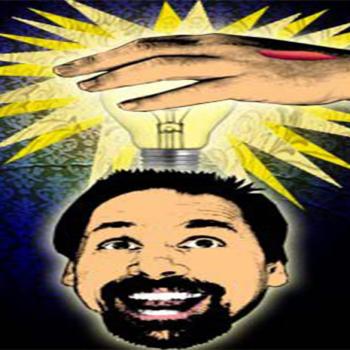 Hollywood is a brave, honest, real world, filled with people who risk their fortunes in order to tell the truth as they see it.
Hollywood is a brave, honest, real world, filled with people who risk their fortunes in order to tell the truth as they see it.
Only not so much when it comes to religion.
When it comes to religion, Hollywood prefers the digitally enhanced version of religious experience. It airbrushes out the details, planes off the hard edges, and universalizes the experience so that everyone can participate—with or without the particular God in question.
The latest example is Mandalay's Soul Surfer, the true story of Bethany Hamilton, a Christian surfer who battled back from the loss of her arm in a shark attack to regain her standing as a champion. Though Mandalay producers finally relented in the face of a howl of protest from the Hamilton family, at first they took the words "Holy Bible" off of the front of the Bible that they showed Bethany's father reading to her as a child. According to the press presumably this was done to make the film more appealing to non-Christian audiences.
This is nothing new, of course. If there isn't a negative angle to be had in a religious story, more often than not Hollywood prefers the digitally enhanced version of spiritual commitments. The Lord of the Rings trilogy was an excellent example. Rendering it a cosmic myth fit for all audiences, producers muted the Christian and Catholic underpinnings of Tolkien's trilogy in a way that made it mean everything and nothing at all.
One has to wonder why Hollywood has so much trouble with real world religious motivations. After all, the film Milk wasn't about a mayor with an undisclosed sexual orientation, and Oliver Stone's Chavez was quick to own the latter's association with Fidel Castro and socialism. If the courageous denizens of Hollywood are so quick to advocate for other formative forces in our lives, why not be honest about the particularity of religious commitments?
The answer, of course, is money and a lack of empathy with religious commitments. You can attract bigger audiences without being specific.
But my interest here is not in Hollywood per se. My interest is in the implied notion of those films: the notion that spiritual and religious commitments can be generic and yet formative—the notion that the best faith is an undefined faith and a God without a name.
It is this notion that is both misleading and largely errant. A faith without content might sell a lot of movie tickets. It might generate a warm feeling or two. On a rare occasion an unnamed God can even get us started on a spiritual journey. The Apostle Paul knew that and so do those whose first steps on their journey are taken with a Twelve Step Program. But an unnamed God does not have much staying power.
Why? Because to name God is to name what God wants and with it the purpose of life, the nature of our values, and the shape of our commitments. The decision to name God is a decision to name what is real and, by definition, what is unreal—what is important and what is less important, or even trivial. Naming God, in other words, is itself an act of commitment.
I am not suggesting that there are those who make commitments and sacrifices without making religious choices. There are and people do. But I am arguing that religious people do it by being specific.
The gutted, empty model that Hollywood offers has all the attraction of that foamy white stuff in a bag that passes for bread in the grocery store. It hints that it isn't necessary, normal, or even desirable to make those choices. In fact, movies often imply that to make those choices is to buy into the darkness of a narrow, judgmental superstition.
But deep down Hollywood knows that's not the case. That is why it has no such problem with those who make other kinds of specific commitments. Responding to those who argued that he ignored the "dark side" of Chavez, Oliver Stone leapt to his subject's defense, protesting, "A dark side? There's a dark side to everything. Why do you seek out the dark side when the guy is doing good things?" One wonders why it is so hard for Hollywood to believe that people with serious religious commitments could also do good things.
So, where are we to go—those of us who are forced to take or leave Hollywood's digitally enhanced form of religion? If you enjoy movies (as I do), by all means, watch them. But don't take Hollywood's religion to heart. Producers may never find a way to talk about real Christians, Jews, Muslims, or anyone else who chooses to name God as a means of defining life. But choosing and naming a God will always be the way it is outside the theater.
Read Frederick Schmidt's What God Wants for Your Life: Finding Answers to the Deepest Questions to explore further the work of naming God.
2/21/2011 5:00:00 AM





